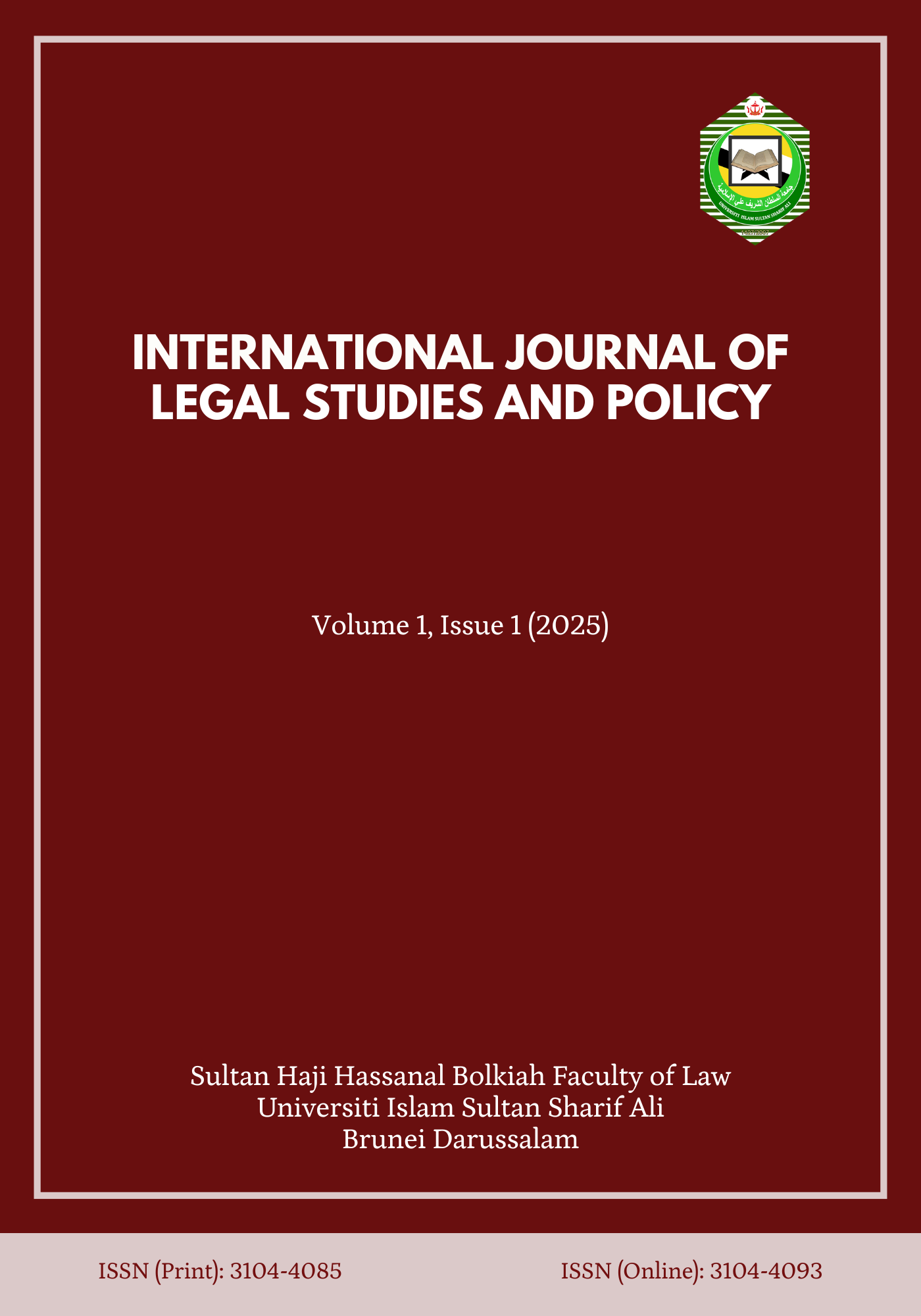LAND LAWS AND THE ECONOMIC IMPERATIVE: MOTIVATIONS FOR POLITICAL SURVIVAL IN THE FORMATIVE STATE OF BRUNEI

Published 18-08-2025
Keywords
- Public Policy,
- Law,
- Brunei,
- Socio-political Identity,
- the Resident Period
How to Cite
Abstract
Law and public policy are two intertwined, yet fundamentally distinct, categories continuously shaping all aspects of social relations. The degree to which they arbitrate daily life demands better understanding of their relational dynamics, being essential for effective governance and decision-making, but more importantly, to also better understand how their nuances, sometimes unintended, can impact society. This paper employs critical juncture theory to examine the intersection between public policy and the law, focussing on
the 1907 Land Enactment and the 1909 Land Code, backdropped against a period when Brunei was in the midst of transforming from a traditional negara system of governance to a modern state. The broader context within which policy decisions are made, together with its accompanying law(s), is essential for understanding the two categories’ symbiotic processes. This study is further deepened by an additional analytical dimension posed by the early State of Brunei’s fluid socio-political state of affairs, bringing the relationship between public policy and the law into sharper focus. This study finds Brunei’s 1907 Land Enactment and 1909 Land Code was impelled by a political imperative in the guise of economic policy, while laying the critical foundations for constructing a yet-to-emerge concept of national identity that will forever change Brunei’s socio-political landscape.